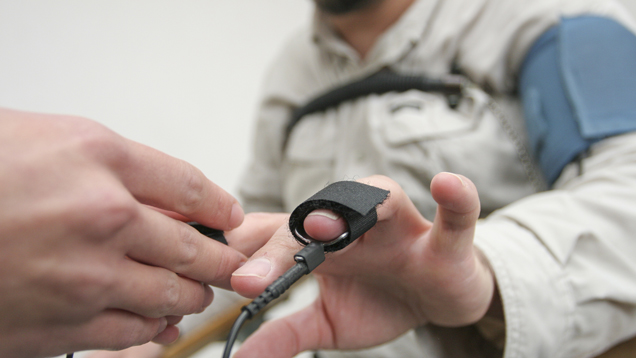A war by any other name
 CREDIT: PEFOSTUDIO / ISTOCK / THINKSTOCK
CREDIT: PEFOSTUDIO / ISTOCK / THINKSTOCKIf Trudeau were to take a lie detector test today he might pass. That's how well he believes his own lies.
There’s a cunning way that some people are able to foil lie detectors. The polygraph machine measures physiological reactions to determine if a person experiences any stress that lying would theoretically cause. It takes practice, but once a person can convince even themselves they aren’t lying, the machine can’t tell either. Prime Minister Justin Trudeau must practice daily.
All the political press can talk about is the recent announcement addressing the election promise of ending the bombing campaign against ISIL. The Liberal government is taking flak from every side after announcing that Canadian forces would no longer engage in bombing missions after Feb. 22.
Right wing critics warn that Trudeau is failing to support our allies overseas. Left wing critics are upset about plans to expand the ground presence of Canadian training personnel who engage in combat roles. The truth is that in the broader scope there will be an increased Canadian contribution to the fight against ISIL.
The conflict with ISIL coincides with major political developments in both Canada and the United States. Electoral campaigns inevitably try to find a popular, opposing stance to that of the other candidates, regardless of whether they actually make sense. If Trudeau ever intended to fully withdraw Canadian troops, it was before the Paris attacks. Now, it would be international political suicide for the country. Changing the way that Canadian forces are engaged in the mission is a cunning way to phase out of a “combat” role in favour of a “training” one.
Although neither camp is happy with the end result, Trudeau has managed to avoid any policy contradictions while telling the international community that a wink is as good as a nod. While the Conservative government under Stephen Harper had the tendency to ignore optics in favour of action, the newly elected Trudeau government couldn’t be more different.
It’s easy to imagine Trudeau staring at himself in the mirror and repeatedly saying ‘yes’ in a firm decisive tone in preparation for anyone to ask him anything ever. To be fair, when you’re committed to an operating budget that plans to rack up almost a billion dollars in debt every month for the next two years, who can you possibly say no to?
Judging from how his time in office has gone so far, Trudeau looks like he’ll follow precisely in his father’s footsteps. It’s hard to pin it down, but there seems to be some genetic predisposition to fire-hosing cash at any problem that stands still long enough. It will take the benefit of hindsight to see whether the cash-up-front strategy of stimulating the economy will succeed. The downside is that if the strategy fails, the money is already gone.
The catastrophes of bygone eras were natural disasters, disease, and war. The 20th century introduced economic catastrophe in 1929, when poverty and homelessness skyrocketed in the United States because of a collapse in the financial markets. Just like the good old fashioned catastrophes, everything was fine right up until it wasn’t. When it comes to another financial recession the question isn’t ‘if’, the question is ‘when’.
Editorial opinions or comments expressed in this online edition of Interrobang newspaper reflect the views of the writer and are not those of the Interrobang or the Fanshawe Student Union. The Interrobang is published weekly by the Fanshawe Student Union at 1001 Fanshawe College Blvd., P.O. Box 7005, London, Ontario, N5Y 5R6 and distributed through the Fanshawe College community. Letters to the editor are welcome. All letters are subject to editing and should be emailed. All letters must be accompanied by contact information. Letters can also be submitted online by clicking here.














